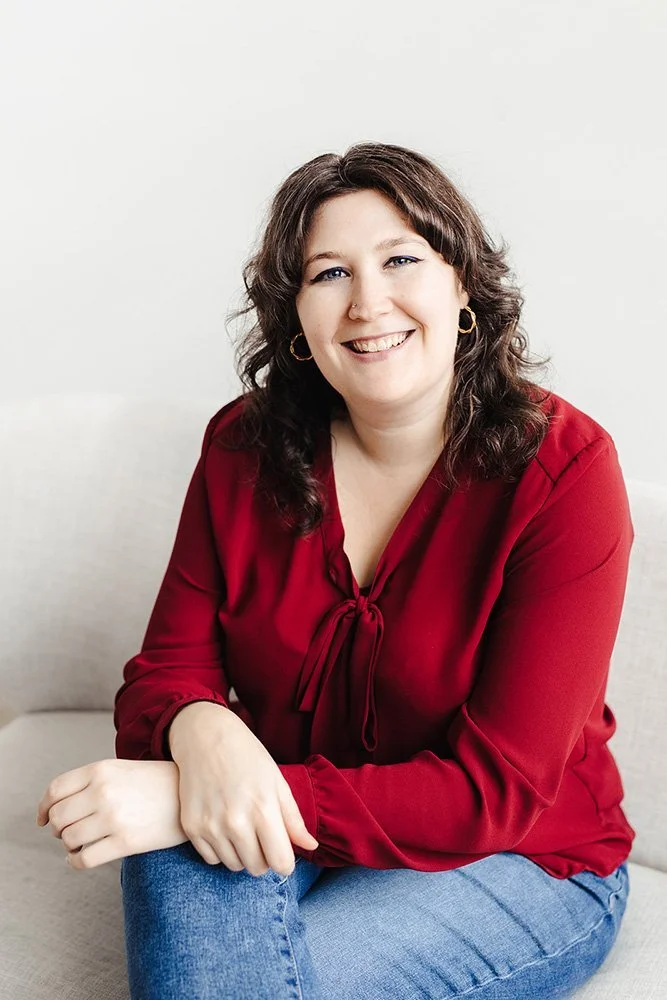Return to the Table
By Amanda Kieser, LMHC
Most people don’t come to therapy saying they have an eating disorder. They come in saying things like, “I can’t stop thinking about food,” or, “I’m exhausted by my own rules.” Often, they don’t even realize how much space thinking about food is taking up in their lives until we start to look at it together.
Food is everywhere. It’s not just about nutrition or fuel. It’s tied to memory, family, culture, identity, and control. It can be a source of joy, or it can be a place of shame and guilt. For many people, it’s both.
When I ask clients how much of their day is spent thinking about food, the answer is often “most of it.” What they’ll eat, what they won’t.
Whether they earned it.
Whether they’ve ruined the day.
It becomes a quiet background loop, running under every other thought.. And over time, it disconnects them from their own lives.
You start to feel it at birthday parties or dinners with friends. You show up, but you’re not really there. This is because you are so distracted by the planning and hiding. Perhaps you bring your own food. Or, you eat ahead of time so you don’t have to deal with the stress of eating in front of people. You skip the cake. You laugh along, but you’re doing calculations in your head the whole time. That’s what disordered eating looks like for a lot of people. And often, no one notices.
Or worse, they praise you for your willpower and discipline.
Our culture has built a narrow image of what a person with an eating disorder is supposed to look like. Most people picture someone very thin, very frail, someone who “looks sick.” But disordered eating and eating disorders show up in all kinds of bodies, across all genders and identities. An unfortunate consequence of this image is that many people in larger bodies who struggle with food are never diagnosed. Instead, they are encouraged to keep going, to lose more weight, to stay in the patterns that are harming them.
One of the hardest parts of recovery is that so many of these behaviors are socially acceptable. Avoiding food groups, skipping meals, following rigid food plans, labeling foods as good or bad. These things don’t raise red flags. In fact, they often get applause.
But over time, the stress builds.
The shame grows.
And food, which should be a way to connect and care for yourself, becomes a source of fear and disconnection.
I don’t tell people what to eat. I help them understand their relationship with food. What it’s been doing for them. What it’s been protecting. Where it’s been holding identity. And then we slowly begin the process of letting go so they can rebuild something more beneficial.
Because food is not the enemy. Hunger is not failure. And returning to the table means more than just eating again. It means allowing yourself to show up. Fully. In your body. In your relationships. In your life.
You deserve to be there. Just as you are.
Hi, I'm Amanda Kieser
I believe that everyone is on their own journey, and that we are meant to learn and change along the way. I help my clients better understand their own feelings, thoughts, and experiences. I work with people coping with depression, anxiety, disordered eating or eating disorders, and body image concerns. I also loves helping clients with identity work, attachment styles, and reparenting.


